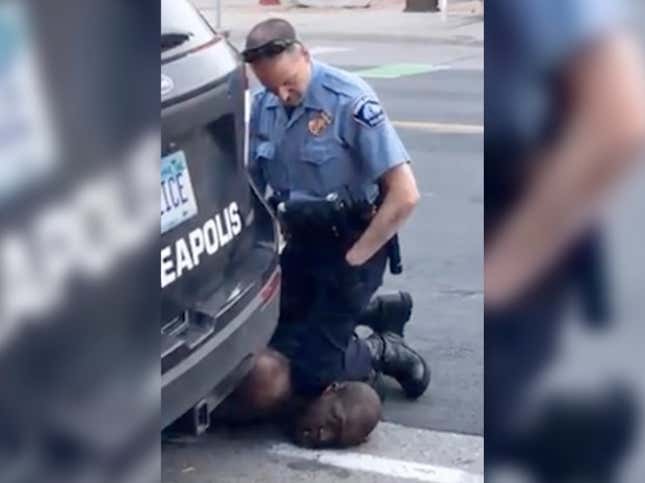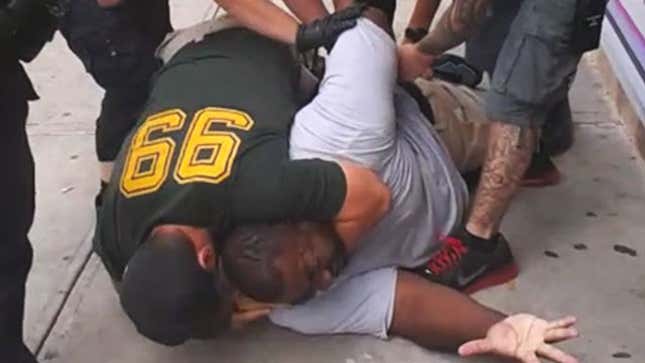
This article contains images that may be disturbing to some viewers.
The three officers acquitted in the killing of Manuel Ellis were accused of utilizing an inhumane restraint that led to Ellis’ death. Now, lawmakers are seeking to place a ban on the technique.
When Ellis was apprehended by Tacoma police officers, he was allegedly beaten him, tased multiple times and tackled him to the ground where they hog-tied him: placing the hands and feet in handcuffs behind his back while he laid face down. Monday, legislators raised concern about the restraint technique, citing that it is often a risk for suffocation which was a significant factor in Ellis’ death.
“How do we move through the need for folks to enforce the laws, but do it in a way where they’re treating people the way we expect, which is as human beings?” said Democratic Sen. Yasmin Trudeau, per The AP.
This type of policy work doesn’t stop at Mr. Ellis. The inhumane restraints and compliance techniques police departments teach their employees aren’t that far off from the forms of physical torture Black people were subject to during slavery. However, it’s considered legal now because instead of metal shackles and iron masks, it’s handcuffs and headlocks by a man with a badge and gun.
George Floyd

Former Minneapolis cop Derek Chauvin knelt on George Floyd’s neck, pinning him down on his main airway for nearly ten minutes. Even after Floyd stopped resisting and voiced his struggle to breathe, Chauvin remained there. The city’s police chief testified at his trial that his actions violated policy.
That type of knee-to-neck restraint had been banned already in several agencies across the state of Minnesota but for some reason, it was still tolerated as a “non-deadly use of force” technique in Minneapolis, Business Insider reports. The city council agree in an emergency vote to ban chokeholds and neck-pinning maneuvers just a few months after Floyd was killed in 2020, per NPR.
Elijah McClain

At the time Elijah McClain was injected with a lethal dose of ketamine after being stopped by Aurora officers, he was held in what was known as a carotid hold: a technique that restricts blood flow on the major carotid artery to the brain and may cause temporary unconsciousness. During the trial against the officers, medical experts revealed the lack of oxygen to McClain’s brain increased the amount of acid in his body and caused him to vomit, inhale his own vomit into his lungs and caused the blood vessels in his eyes to burst, per The Denver Post.
The carotid hold was banned for police use in Colorado in 2020 when McClain’s case resurfaced.
Eric Garner

The words “I can’t breathe” echoed across America after Eric Garner was cried out for help while being placed in a fatal chokehold by an NYPD officer back in 2014.
New York State Assembly passed a bill called the Eric Garner Anti-Chokehold Act in 2020, criminalizing the use of chokeholds that result in death or injury - an offense punishable by 15 years in prison. The act was actually a reboot of the 1993 bill that was already passed, per CBS News.

